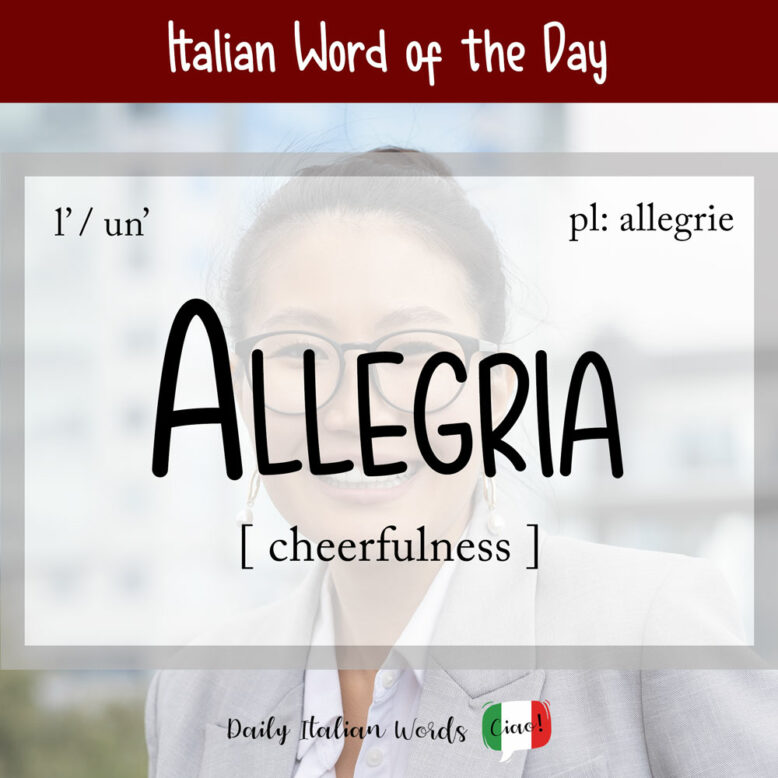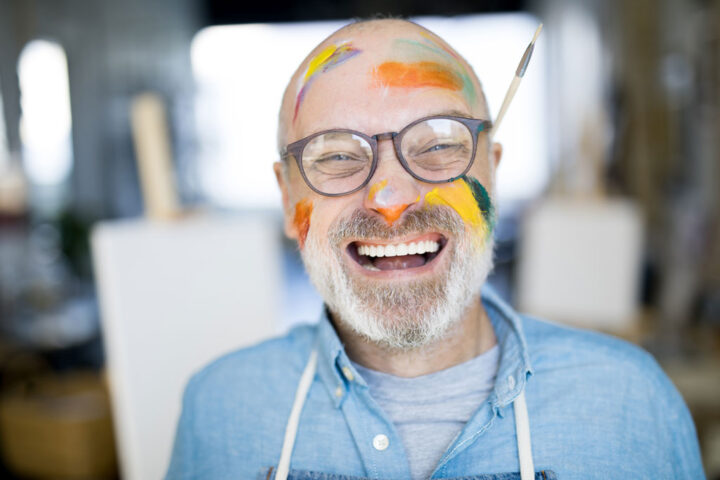Today’s word of the day is bound to raise your spirits if you’re feeling glum! Allegria (feminine, plural: allegrie) is how you would say cheerfulness, joy or merriment in Italian.

If you have trouble remembering this word, it might help to associate it with the musical term allegro, the name given to a lively musical piece performed at a brisk speed.
In contrast with gioia (joy) which is more profound and sedate, allegria refers to a state of happiness which is lighthearted, superficial and often displayed in a lively and noisy way.
Questo è uno spettacolo che mette allegria.
This is a show that makes you cheerful.

Some verbs you’ll often see used with allegria include:
- essere in allegria = to be cheerful, to be happy
- stare in allegria = to be cheerful, to be happy
- vivere in allegria = to live cheerfully, joyfully
- fare allegria (a qualcuno) = to welcome (someone) enthusiastically
- mettere allegria (a qualcuno) = to put (someone) in high spirits
The exclamation Allegria! is used when the mood of a place is good or to lighten the mood if somebody breaks an object like a plate or a glass.
By extension, allegria can also refer to the vividness or liveliness of something that is pleasant to the eyes or ears, such as a beautiful song or a colourful painting.
Below are a few additional terms that are related to allegria:
- allegro / allegra = cheerful, joyful
- allegramente = cheerfully, merrily
- allegrezza = joy, delight
Did you know that…?
Allegra is also a popular girl’s name in Italian.
Heather Broster is a graduate with honours in linguistics from the University of Western Ontario. She is an aspiring polyglot, proficient in English and Italian, as well as Japanese, Welsh, and French to varying degrees of fluency. Originally from Toronto, Heather has resided in various countries, notably Italy for a period of six years. Her primary focus lies in the fields of language acquisition, education, and bilingual instruction.


